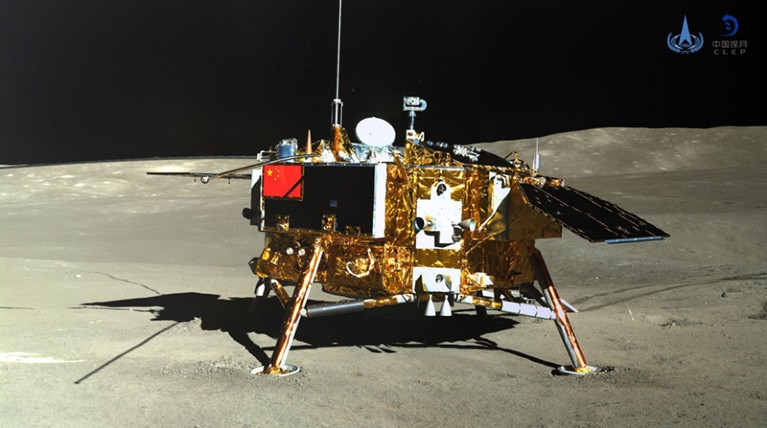
The Seattle Sounders hit the road to face Real Salt Lake for the season’s second meeting between the two sides on Saturday night. After a lot of poor finishing and some less-than-stellar passing, a lot of physical play and a well-deserved second-yellow red card to Pablo Ruiz in stoppage time the game ended 0-0.
Both sides had stretches of possession and dangerous chances throughout the first half. RSL’s best moments seemed to come from transition moments as they attempted to punish Seattle for giveaways, but time after time Stefan Frei was there to keep them off the scoreboard. Seattle got into plenty of dangerous spots, but Zac MacMath wasn’t required to intervene much as the Sounders got in their own way or let themselves down with a final pass or touch more often than not. At the halftime whistle the game was still as it had started: scoreless.
There were plenty of moments when a goal was there for the taking, through craft or guile, but neither side seemed to have what they needed. As the game wore on the altitude seemed to clearly be taking its toll on Seattle, and the repeated kicks and clashes that they suffered from RSL took their own toll as well. Nine yellow cards were shown in total, with six of them going to Salt Lake including Pablo Ruiz receiving two of them after a stamp on Nico Lodeiro as the game ticked into stoppage time.
It's a frustrating attacking performance, but ultimately it's a shutout and a point on the road. Whatever good feeling may have come from the result was likely wiped out by Kelyn Rowe having to be helped off of the field late on with an apparent knee injury.
9’ — A fortunate bounce of the ball puts Léo Chú goal side of his defender and he plays a ball across the box that nearly finds Héber on the doorstep.
11’ — Alex Roldan plays Jordan Morris through after picking a pass off. Morris hits a dangerous cross that nearly finds the net off of a touch from a defender.
18’ — The first real look for RSL comes from a dangerous cross off of the wing and a header around the 6-yard box for Rubio Rubin, but the shot goes just wide of the far post.
21’ — Chú nutmegs a defender and dribbles into the box to lay the ball off to Héber, whose first-time effort is saved well by Zac MacMath at the near post.
29’ — João Paulo plays a little slip pass at the edge of the RSL box with Héber and Morris both running onto it. Héber takes the shot but pulls it wide.
30’ — Stefan Frei makes an excellent leaping, one-handed save to stop a twisting shot from distance, then is able to pop the ball over the bar and deny any chance of a rebound.
45’ — RSL play quickly through Seattle following a giveaway from Morris on the sideline and Rubin gets another good look that’s just kept out by a diving save from Frei.
47’ — Alex Roldan sends in a tantalizing cross from the right that just misses connecting with Morris’s head right in front of goal.
51’ — Another in a long line of very close chances for Seattle as Chú slips a ball through for Morris, who just gets there ahead of MacMath and rounds him but can’t get a good look.
78’ — A great touch from Héber gets him through the defense, and another clever touch sets Morris up with a great chance but the shot goes high.
Ode to Kelyn Rowe: Kelyn Rowe came to Seattle having already accomplished more than many players ever do. He’d constructed a meaningful and impressive career in professional soccer, initially making his way as that most elusive of American players: a god’s honest no. 10. He played himself into the USMNT conversation, but some injury trouble and the ever-changing makeup of the league forced him to adjust as he made his way back across the country from his time with the New England Revolution, stopping at Sporting Kansas City and Real Salt Lake before finally arriving home in Seattle. He joined his hometown club a journeyman and a veteran, willing to play on a team-friendly deal in whatever role was required of him. In that manner he’s consistently been available, he’s been a vocal leader and a guiding presence for younger guys, and he’s put in solid, reliable performances. There’s not much more you can ask for from a veteran depth piece. He’s been a legitimate backup option at a number of spots, including left back. We won’t know the severity of his injury for a little while, but it’s undeniably a blow. Hopefully the people around him are able to lift him up and help him through it. Get well soon.
Feeling Cristian Roldan’s absence: I don’t know that having Cristian Roldan available would have changed the result of this game, but it probably would have made the task of keeping the Sounders attack in check a bit more complicated. In Cristian Roldan’t absence Brian Schmetzer has rolled out Jordan Morris on the right side of the attack with Léo Chú keeping his spot on the left. It’s not a bad option, and it gets a lot of quality attacking talent on the field, but there’s a reason Morris has moved primarily over to the left for a while now. Deployed on the right, Morris has a tendency to drift centrally which does help to occupy the centerbacks, but it also puts a lot of weight on Alex Roldan’s shoulders to maintain and provide width to the attack and prevent opponents from attacking down that side. With Cristian Roldan in that spot he and his brother more evenly split those duties as they overload and outwit whoever has the misfortune of lining up opposite them. Add the outrageous chemistry and understanding between them to Cristian’s attacking abilities in their own right and the Sounders just aren’t the same without him on the field. Once again, get well soon, we all hope for a complete recovery.
Championships are built on defense: For a brief moment, the Sounders are on top of the West with 20 points through 10 games. They’ve only allowed seven goals through those 10 games, and four of those came in that nightmarish Portland Timbers game. This was the sixth clean sheet of the season for Seattle, and the first to come away from Lumen Field. It would have been great to get the win, and that’s surely something the team will talk about in training this week, but the result is an objectively good one. Trips to face RSL have long been cursed ones, and it’s absolutely necessary to come away with a result of some kind when the team travels and while RSL’s place in the table doesn’t strike fear in the heart they had scored three goals in each of their last two home games. This Sounders team has everything they need to add more silverware to the trophy case, and this game is another step towards doing just that.
Stefan Frei was clutch, as usual.
Coach Brian Schmetzer notes that it’s a knee injury for Rowe and probably serious. Schmetzer surmises that RSL fans thought Rowe was embellishing his injury, and that they were making light of his situation. He makes it clear that Rowe was not embellishing anything. #Sounders pic.twitter.com/pvipnIK0Kz
— Miki Turner (@turneresq) April 30, 2023
3,824 — The Sounders hadn’t kept a clean sheet in Sandy, UT since they won 1-0 on November 8, 2012, 3,824 days ago.
Poll
Man of the match
-
59%
Stefan Frei
(288 votes) -
17%
Kelyn Rowe
(85 votes) -
9%
João Paulo
(44 votes) -
13%
Léo Chú
(65 votes)
April 30, 2023 at 11:58AM
https://news.google.com/rss/articles/CBMiX2h0dHBzOi8vd3d3LnNvdW5kZXJhdGhlYXJ0LmNvbS8yMDIzLzQvMjkvMjM3MDUwNjgvc291bmRlcnMtYXQtcmVhbC1zYWx0LWxha2UtcmVjYXAtYS1oYXJkLXBvaW500gFsaHR0cHM6Ly93d3cuc291bmRlcmF0aGVhcnQuY29tL3BsYXRmb3JtL2FtcC8yMDIzLzQvMjkvMjM3MDUwNjgvc291bmRlcnMtYXQtcmVhbC1zYWx0LWxha2UtcmVjYXAtYS1oYXJkLXBvaW50?oc=5
Sounders at Real Salt Lake, recap: A hard point - Sounder At Heart
https://news.google.com/search?q=hard&hl=en-US&gl=US&ceid=US:en





:max_bytes(150000):strip_icc():focal(719x38:721x40)/jenna-bush-hager-miscarriage-042823-d348eb8f9eca4ec0a247e5b4547e5e60.jpg)



:quality(70)/cloudfront-eu-central-1.images.arcpublishing.com/irishtimes/BTNLV52CNFWXQL2CNNSXOXXCQA.jpg)
